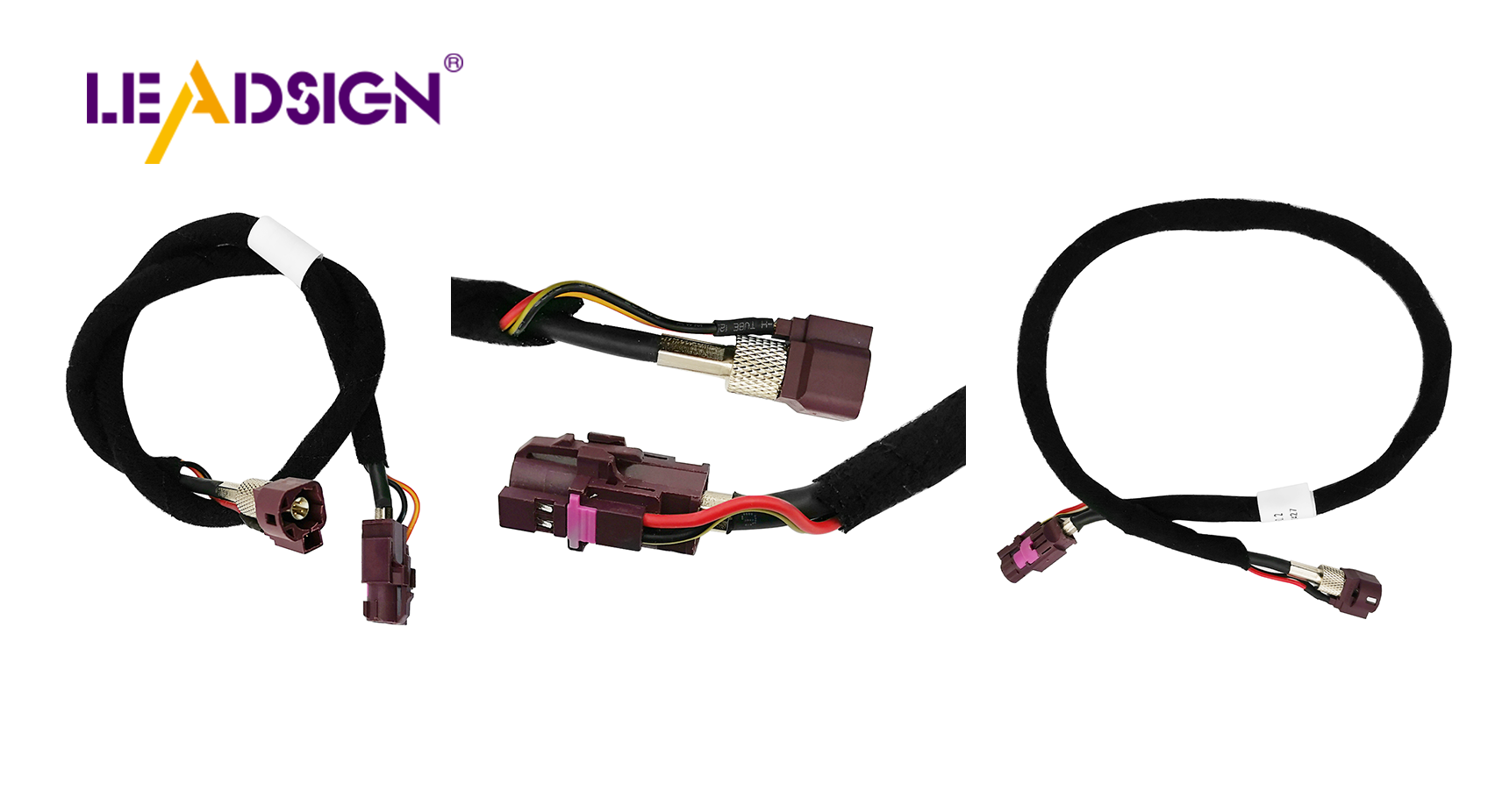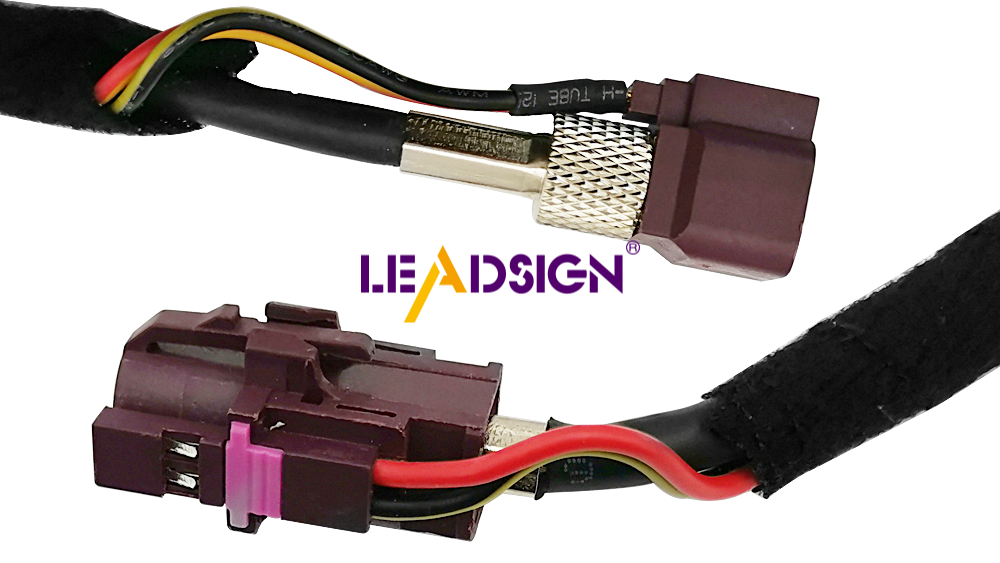How to Select the Best Automotive Electrical Connectors

Choosing the appropriate car wire connector types is crucial for the optimal performance and safety of your vehicle. These connectors play a vital role in ensuring smooth electrical flow within your car. Selecting the right connectors is essential to prevent issues like electrical failures or potential fires. Understanding the different types of connectors available for car wiring is key to making informed decisions. Factors such as pin numbers and environmental conditions can impact connector reliability. By selecting the correct types, you can enhance the longevity and efficiency of your car's electrical systems.
Understanding Automotive Electrical Connectors

When picking automotive electrical connectors, knowing the different car wire connector types is key. Each type has a special job and keeps your car's electrical systems working well.
Car Wire Connector Types
Blade Connectors
Blade connectors are flat metal pieces that fit into slots. They are simple to use and hold tightly. You see them where quick disconnection is needed.
Pin Connectors
Pin connectors, or pigtail connectors, have pins that go into sockets. These work well in places needing strong connections, like shaky areas.
Butt Connectors
Butt connectors link two wires end-to-end. They're great for joining wires in car repairs. Their design makes sure connections stay strong.
Connector Materials
The material of a connector affects how it works and lasts. Picking the right material helps connectors handle different conditions.
Metal Connectors
Metal connectors, often copper or brass, conduct electricity well. They suit hot and shaky spots, keeping connections steady.
Plastic Connectors
Plastic connectors stop moisture and protect from rust. They're light and used where corrosion resistance matters most.
Connector Specifications
Knowing connector specs helps you pick the right ones for your car.
Current Rating
Current rating shows how much current a connector can take. Choosing the right one stops overheating and damage.
Voltage Rating
Voltage rating tells the max voltage a connector can carry safely. Matching this with your car's system is important for safety.
Temperature Range
A connector's temperature range shows if it works in extreme heat or cold. Picking the right range boosts reliability in your car's environment.
By learning about these car wire connector types, you can make smart choices that improve your vehicle’s electrical systems' performance and safety.
Things to Think About When Picking Connectors
Picking the right car connectors means knowing some important things. These help keep your car's electric parts working well.
Weather Conditions
Wetness Exposure
Water can harm connectors by making them rust. Use waterproof connectors if your car gets wet a lot. These stop water from getting in, so they last longer.
Hot and Cold Temperatures
Connectors should handle hot and cold changes. Pick ones that work well from -55°C to +125°C (-67°F to +257°F). This makes sure they work in any weather.
Electric Needs
Power and Voltage Levels
Make sure connectors fit your car's power needs. They should carry electricity without getting too hot. This stops problems and keeps everything safe.
Signal Strength
Good signals are needed for sending data. Strong connectors keep signals clear, stopping loss. This is key for things like music systems and maps.
Physical Needs
Shake Resistance
Cars move a lot, so use connectors that don't shake loose. This keeps connections tight even on bumpy roads.
Strength and Long Life
Strong materials mean better lasting power. Choose copper or brass for good flow of electricity and toughness in bad conditions.
By thinking about these points, you pick connectors that make your car safer and better. Always choose quality ones that fit well with your system.
Practical Tips for Picking the Right Connectors
Checking Your Car's Needs
Knowing what your car needs is important when picking connectors.
Finding Important Systems
First, find the important parts in your car that need electricity. These could be the engine, lights, or music system. Knowing these helps you choose connectors that work well and keep things running smoothly.
Looking at Connector Access
Next, see how easy it is to reach the connectors in your car. Some might be hard to get to, making them tough to check or change. Pick ones that are easy to reach so you can fix them easily.
Talking with Experts
Getting help from experts can make choosing connectors easier. Getting help from experts
Getting Advice from Pros
Talk to car experts or electricians who know about car wiring. They can tell you which connectors are best for your needs. Their advice helps you avoid mistakes and pick wisely.
Using Maker Guides
Companies often give guides about their connectors. Use these guides to learn about different types. This info helps you pick ones that fit your car's needs.
Testing and Checking
Testing makes sure your chosen connectors work right.
Doing Fit Tests
Do tests to see if the connectors fit well with your car's system. These tests find problems early, saving time and money later.
Making Sure They're Installed Right
Putting them in right is key for good performance. Follow instructions carefully for a strong connection. Good installation stops failures and keeps systems lasting longer.
By following these tips, you can pick the best automotive electrical connectors, keeping your car's systems safe and working well.
Choosing the right car connectors needs careful thought. Pick good ones that fit your car to keep it running well. Good connectors stop problems and make your car safer. Use the tips here to choose wisely. This helps your car last longer and work better. Know what your car needs and ask experts if needed. Testing and installing them right is important. Act now and pick connectors that fit your car best.
See Also
The Significance of FAKRA Connectors in Auto Industry
The Value of FAKRA Auto Connectors in Contemporary Cars
The Role of HSD Connectors in Auto Sector

